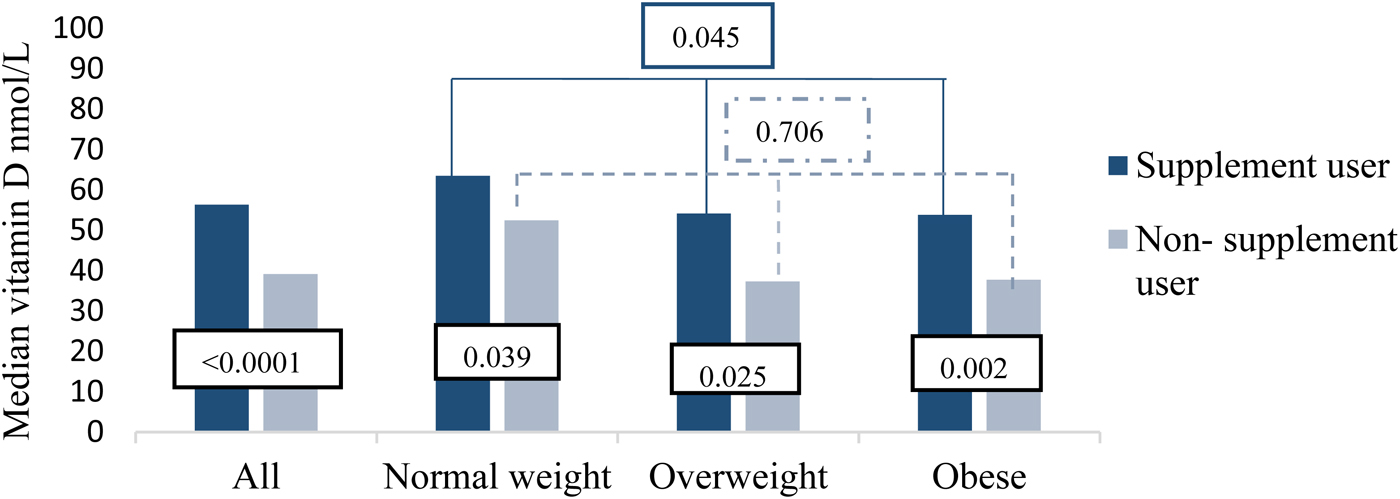Maternal obesity and vitamin D deficiency are both public health issues for pregnant women. Vitamin D status (25-hydroxyvitamin D (25(OH)D) concentrations) during pregnancy has been shown to be inversely correlated with maternal body mass index (BMI)(Reference Perez-Lopez and Fernandez-Alonso1, Reference Bartoszewicz and Kondracka2). In pregnant women, a 5 unit increase in BMI has been associated with a 25(OH)D lowering of 4·2 nmol/L and 2·8 nmol/L in winter and summer months, respectively(Reference Andersen and Abrahamsen3).
The aim of this study was to assess and compare maternal vitamin D status between normal weight, overweight and obese pregnant women in early pregnancy.
Data collected at baseline from a double-blind randomised vitamin D intervention study (MO-VITD) were used for analysis. Pregnant women without pregnancy complications, aged >18 years and having a singleton pregnancy were recruited between January 2016 and August 2017 at antenatal clinics in the Western Health and Social Care Trust, Northern Ireland. Non-fasting blood samples were collected at 12 weeks gestation and were analysed for total serum 25(OH)D using liquid chromatography tandem mass spectrometry. Data from 239 pregnant women (80 normal weight, 79 overweight, 80 obese) were included in the current analysis.
The median (IQR) 25(OH)D concentration of all pregnant women at 12 weeks gestation was 52·9 (36·6, 67·2) nmol/L. Obese and overweight pregnant women were found to have significantly lower vitamin D status than normal weight women (49·6 (33·8, 64·0) vs. 51·8 (34·5, 62·8) vs. 58·8 (42·9, 74·5) nmol/L, P = 0·014). A total of 44% of all pregnant women were found to be either vitamin D deficient (25(OH)D <25 nmol/L;13%) or insufficient (25–50 nmol/L;31%) in early pregnancy. BMI was significantly negatively correlated with vitamin D status (r =−0·168; P = 0·009). Season and supplement use were significant predictors of vitamin D status (β = 0·153; P = 0·013, β =−0·274; P < 0·0001).
In early pregnancy, 62% of all pregnant women reported using a supplement containing vitamin D and 38% reported no supplement use. Supplement users had a significantly higher vitamin D status than non-supplement users in all BMI groups (Fig. 1).

Figure 1. Vitamin D status of supplement users and non users acorss BMI groups
In early pregnancy, obese pregnant women particularly non-supplement users, are at higher risk of vitamin D deficiency. These findings are important for public health services when setting recommendations for vitamin D supplementation during pregnancy.



